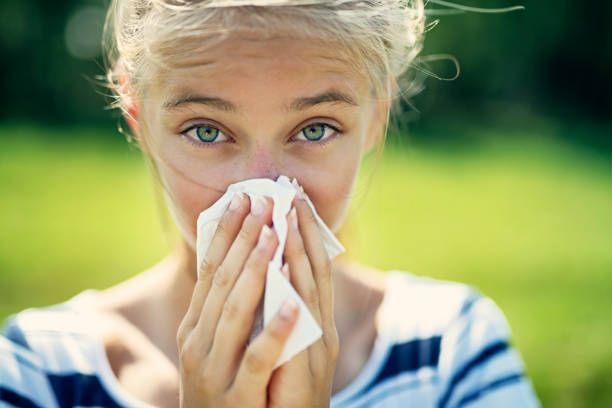
Dr. Doireann shares her top tips on managing hay fever this summer
With summer just around the corner, many of us eagerly anticipate spending plenty of time outdoors. But for millions around the world, alongside the sunshine and blossoms comes the dreaded hay fever season. Renowned women’s health expert and Cork-based GP, Dr. Doireann O’Leary, is sharing her knowledge on understanding and tackling this all-too-common seasonal annoyance.
“Hay fever, or Allergic Rhinitis, typically means sneezing, a runny nose, and nasal congestion. Many sufferers also have to contend with itchy eyes, nose, and throat, coughing, wheezing, changes in taste and smell, headaches, sinus issues, and general fatigue” explains Dr. Doireann. “About 60% of people with hay fever also struggle with allergic conjunctivitis, meaning itchy, stinging eyes, watery discharge, and a pinkish hue to the eyes and eyelids.”
The impact on daily life can be significant. Hay fever often leads to sleep disturbances, constant fatigue, and a general sense of malaise. Studies have shown that children achieve lower exam scores during peak pollen seasons, poor concentration, and reduced athletic performance, whilst adults might face increased anxiety, depression, and reduced productivity at work or school.

“There are certain factors that increase your likelihood of developing hay fever” explains Dr. Doireann. “These include having a family history of allergic diseases like asthma and eczema, early use of antibiotics, being male, being born during the pollen season, and even being a first-born child.
Pollen from trees, grass, and weeds is the main culprit, with symptoms often peaking in spring and autumn when windy conditions spread pollen more widely.”
So, how can we tackle this seasonal menace? Of course, prevention is much better than cure. “The first step is avoiding the allergen that triggers your symptoms as much as possible,” advises Dr. Doireann. “Stay indoors with windows closed when the pollen count is high, and try to avoid going out in the mornings and evenings when pollen levels are at their peak.
Of course though, you can't stay inside all season! So when you do go out, wearing wraparound glasses can help to protect your eyes, and applying Vaseline around your nostrils can trap pollen before it enters your airways. When you get home, shower and change your clothes straight away to wash off any pollen, and avoid drying your laundry outside.”

For managing a runny nose, nasal saline irrigation is a simple yet effective way to clear your sinuses and reduce the risk of infections. You can also talk to your pharmacist about corticosteroid nasal sprays, antihistamine nasal sprays, or medications like Cromolyn or Montelukast. “If you suspect sinusitis as a complication of hay fever”, says Dr. Doireann, “pay a visit to your GP, as you may need antibiotics.”
For eye symptoms, Dr. Doireann recommends removing contact lenses and using a cool compress or wet flannel to ease discomfort. “Avoid rubbing your eyes, as this can worsen your symptoms” she warns. “Instead, use the 'finger to bone' method: rub the inner corner of the nose and press the heel of your thumb to the upper outer corner of the eyelid above the bone. Topical eye drops, like antihistamine drops, can also provide relief. Ask your pharmacist for preservative-free options, as these can actually cause an allergic reaction”.
Oral antihistamines may help alleviate overall symptoms, but use them with caution as they can dry out your eyes and lose effectiveness over time. A short course of oral corticosteroids can help suppress symptoms, but Dr. Doireann advises against the hay fever injection due to its potential side effects. “It's a very high dose steroid, so causes suppression of the immune system which puts patients at risk of severe infection. The risks and side effects outweigh the benefits, so it is generally not a treatment that is recommended anymore.”
The promising news is that a relatively recent treatment has emerged, offering hope for allergy sufferers. Dr. Doireann explains, "Sublingual immunotherapy (SLIT) is a type of allergy treatment in the form of an oral tablet, that utilises the body's natural immune response to progressively diminish allergic reactions. This treatment is accessible through specialised allergy clinics.”
Follow Dr. Doireann: @dr.doireannoleary.






